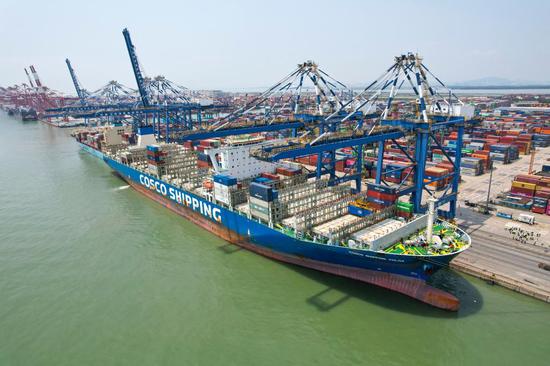(ECNS) -- China last Wednesday passed a law to promote the private sector, aligning with constitutional provisions on the socialist economic system and providing legal backing for the private economy under socialism with Chinese characteristics. The move marks a significant step in the country's legal development.
For the first time, the law enshrines into legal doctrine the long-standing principle of "unswervingly consolidating and developing the public sector and encouraging, supporting, and guiding the development of the non-public sector."

It explicitly states that promoting the private sector's sustained, healthy, and high-quality development is a major long-term policy.
Tian Xuan, vice dean of Tsinghua University's PBC School of Finance, said the law meets the needs of the times by turning development demands into legal protections, helping speed up private economy growth.
Now, the private economy faces new opportunities as well as challenges, including barriers to market access, resource acquisition, and service supply. Some private enterprises also lack strong innovation capabilities.
To improve the environment for private businesses, the new law introduces a unified market access system. It allows private enterprises to enter any area not listed in the market access negative list.
It also supports private enterprises in participating in major national projects, investing in emerging industries, and upgrading traditional equivalents, including modern infrastructure development.
Recently, first-quarter data released by China's National Bureau of Statistics and the State Administration for Market Regulation showed marginal improvements in the private economy, highlighting its resilience and vitality.
As of the end of March, there were over 57 million registered private enterprises in China, accounting for 92.3 percent of all businesses. In the first quarter alone, 1.979 million new private enterprises were established, up 7.1 percent year-on-year, surpassing the average growth rate of the past three years. This reflects the significant scale and growing importance of China's private economy.
Beyond its expanding size, the private sector also shows stronger momentum. In the first quarter, private investment reversed last year's decline and grew by 0.4 percent year-on-year; private enterprise imports and exports increased by 5.8 percent in the same period, raising their share of total trade to 56.8 percent.
As a key pillar of high-quality development, the private economy plays a crucial stabilizing role, boosts market vitality, and promotes foreign trade growth.
Moreover, China's private enterprises are driving technological advancement through dynamic innovation efforts.
In the first quarter, 836,000 new private firms were registered in China's "four new economies"—new technologies, industries, business formats and models—accounting for over 40 percent of all new private enterprises, a 1.4 percent increase from a year earlier..
By the end of March, there were 22.678 million "four new" private enterprises nationwide, acting as key drivers of high-quality economic development.
Through digital transformation, green and low-carbon development, and global expansion, private enterprises continue to enhance their core competitiveness. From artificial intelligence and humanoid robots to commercial spaceflight and quantum information, private companies are achieving remarkable results.
With legal protection in place, the private economy will be better equipped to withstand challenges and play a greater role in advancing Chinese modernization.
(Gong Weiwei)


















































 京公網安備 11010202009201號
京公網安備 11010202009201號